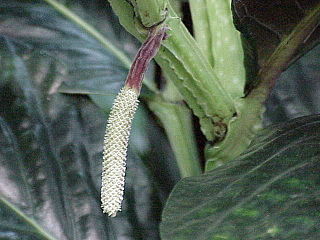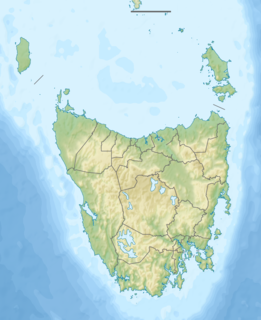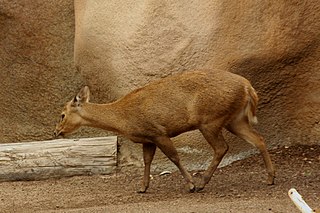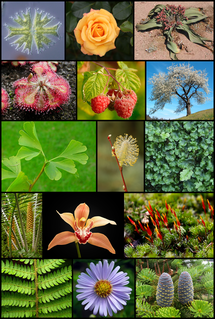
Piper, the pepper plants or pepper vines, are an economically and ecologically important genus in the family Piperaceae.
Pepper or peppers may refer to:

The Pied Piper of Hamelin is the titular character of a legend from the town of Hamelin (Hameln), Lower Saxony, Germany. The legend dates back to the Middle Ages, the earliest references describing a piper, dressed in multicolored ("pied") clothing, who was a rat-catcher hired by the town to lure rats away with his magic pipe. When the citizens refuse to pay for this service, he retaliates by using his instrument's magical power on their children, leading them away as he had the rats. This version of the story spread as folklore and has appeared in the writings of Johann Wolfgang von Goethe, the Brothers Grimm, and Robert Browning, among others.

Roderick George Toombs, better known by his ring name "Rowdy" Roddy Piper, was a Canadian professional wrestler and actor.

Billie Paul Piper is an English actress and singer. She first appeared as a performer in Scratchy & Co. At the age of 15 she released her debut single "Because We Want To", which made her the youngest artist to enter at number one on the UK Singles Chart. Her debut album Honey to the B (1998) was certified platinum by the British Phonographic Industry. In 2000, she released her second album, Walk of Life. In 2003, she retired from the recording industry and began an acting career.

Piperine, along with its isomer chavicine, is the alkaloid responsible for the pungency of black pepper and long pepper. It has been used in some forms of traditional medicine.

Long pepper, sometimes called Indian long pepper or pipli, is a flowering vine in the family Piperaceae, cultivated for its fruit, which is usually dried and used as a spice and seasoning. Long pepper has a taste similar to, but hotter than, that of its close relative Piper nigrum – from which black, green and white pepper are obtained.

The Pipers River is a perennial river located in northern region of Tasmania, Australia. It was named for Captain Hugh Piper.

The chestnut short-tailed bat is a bat species from South and Central America. The species is often confused with the Benkeith's short-tailed bat. It is a mainly frugivorous species that has been known to consume insects. To determine which pipers to forage on, it focuses on oder and then after proceeds to echolocate to determine position. It hunts between nightfall and midnight. Habitats include hollow trees, caves, cracks, abandoned mines, sewers, and house roofs. It does not decrease activity during full moons, only instances of turbulent weather like heavy rain. In an agricultural setting it has a higher resistance to habitat fragmentation compared to similar bat species.
Charles Vancouver Piper was an American botanist and agriculturalist. Born in Victoria, British Columbia, Canada, he spent his youth in Seattle, Washington Territory and graduated from the University of Washington Territory in 1885. He taught botany and zoology in 1892 at the Washington Agricultural College in Pullman. He earned a master's degree in botany in 1900 from Harvard University.

The Calamian deer, also known as Calamian hog deer, is an endangered species of deer found only in the Calamian Islands of Palawan province of the Philippines. It is one of three species of deer native to the Philippines, the other being the Philippine sambar, and Visayan spotted deer.

Piper aduncum, the spiked pepper, matico, hierba del soldado, achotlín, cordoncillo, higuillo or higuillo de hoja menuda, is a flowering plant in the family Piperaceae. Like many species in the family, the matico tree has a peppery odor. It grows wild on the coasts and in the forests of Central and South America and in the Interandean Valleys, up to 3,000 meters above sea level.

The Palawan bearded pig is a pig species in the genus Sus endemic to the Philippines, where it occurs on the archipelago of islands formed by Balabac, Palawan, and the Calamian Islands. It is 1 to 1.6 m in length, about 1 m (3.3 ft) tall and weigh up to 150 kg (330 lb).

The piper gurnard, piper or lyre gurnard is a fish species in the monotypic genus Trigla, part of the family Triglidae. It is called the piper or piper gurnard because of the sound it makes when caught.

Piper borbonense is a species of plant in the genus Piper. A close relative of black pepper, its berries are used as a spice known as voatsiperifery, which comes from voa, the Malagasy word for fruit, and tsiperifery, the local name of the plant. A wild pepper, it grows in Madagascar.

Silicon Valley is an American comedy television series created by Mike Judge, John Altschuler and Dave Krinsky. The series focuses on five young men who founded a startup company in Silicon Valley. The series premiered on April 6, 2014 on HBO, and the fifth season premiered on March 25, 2018. The series has been renewed for a sixth and final season, which will consist of seven episodes and premiere on October 27, 2019.
Guineesine is an alkaloid isolated from long pepper and black pepper.
















